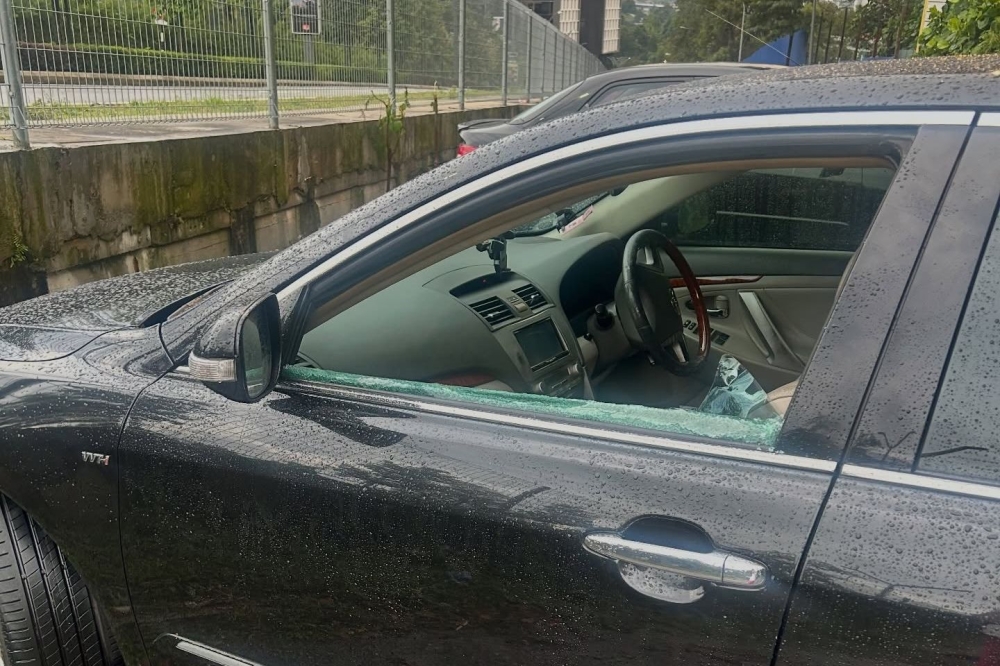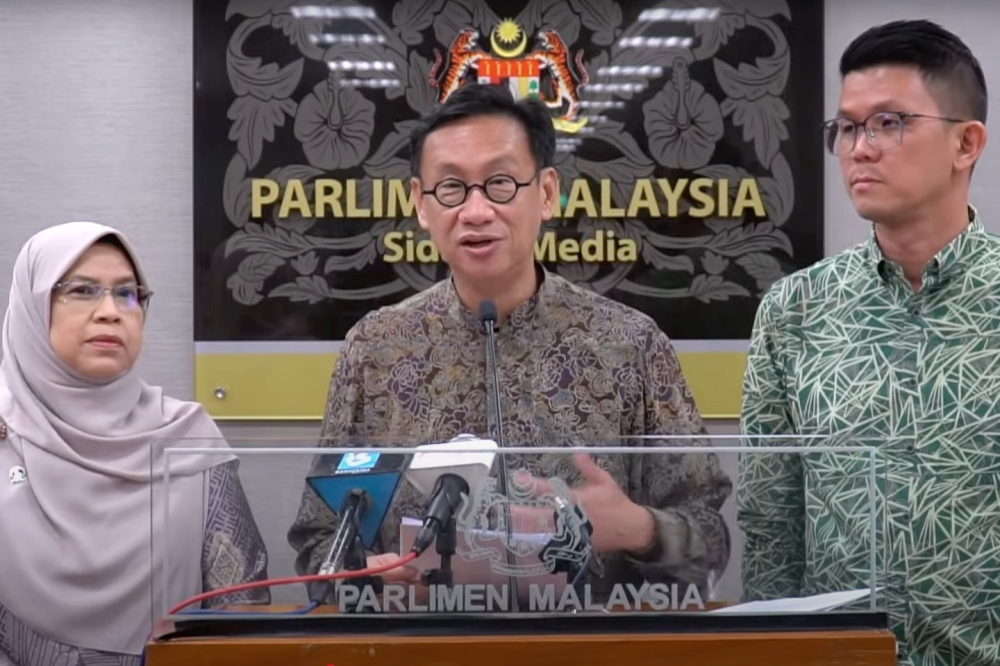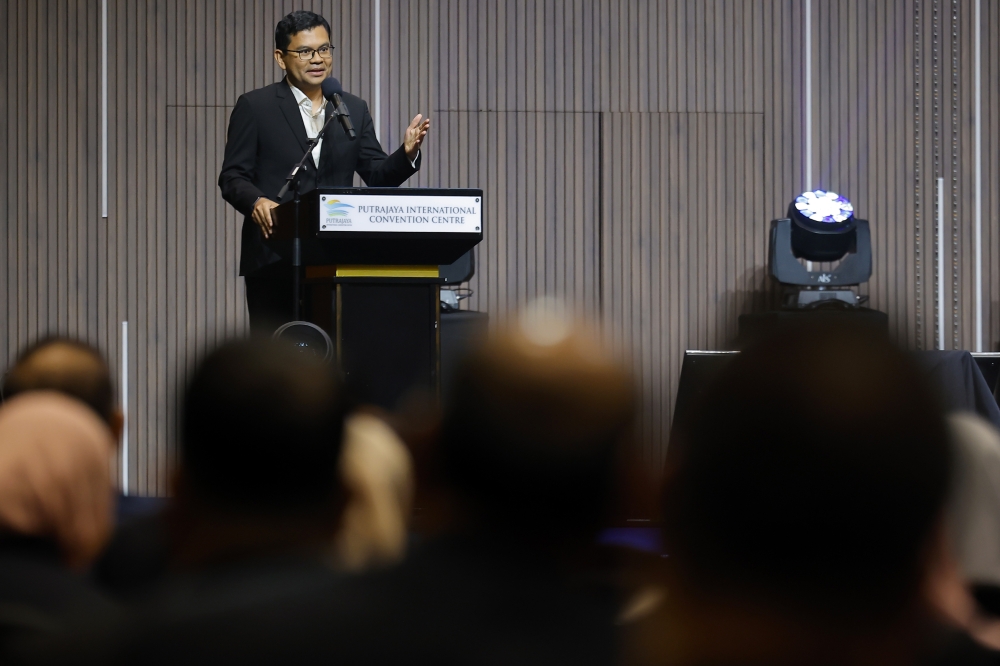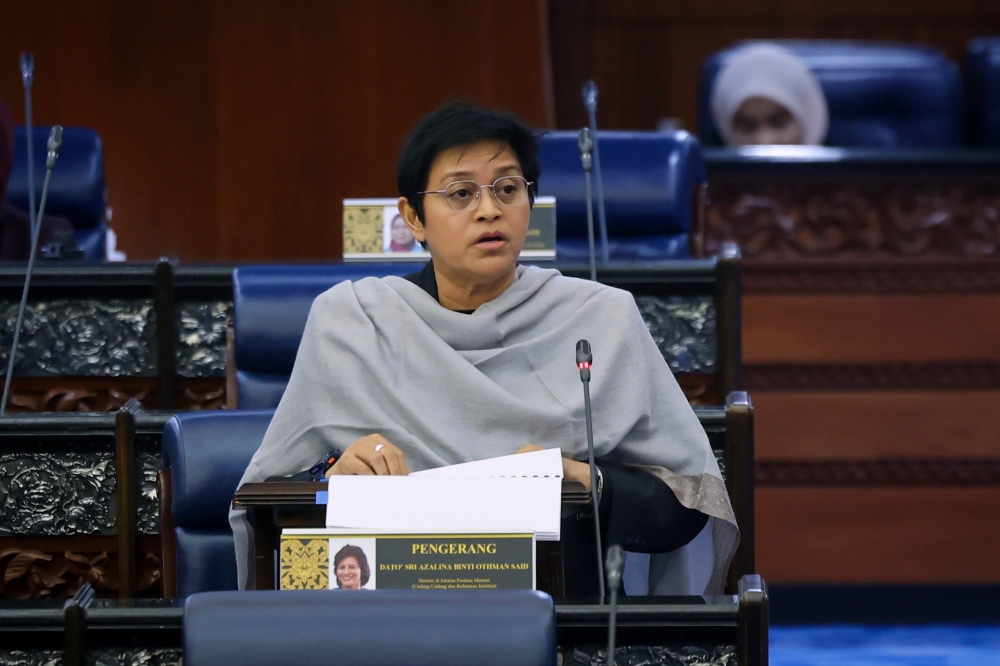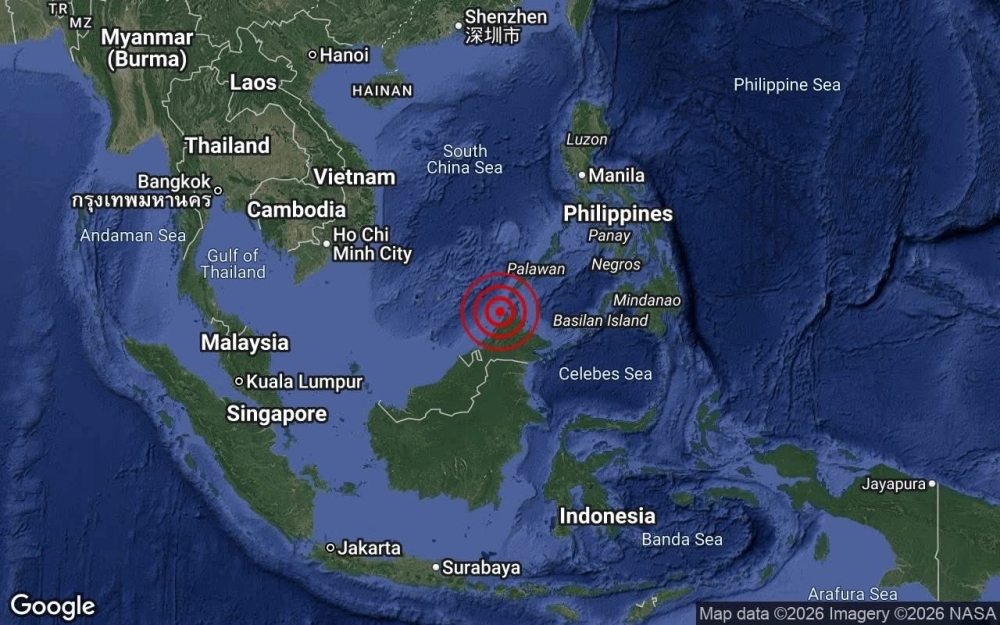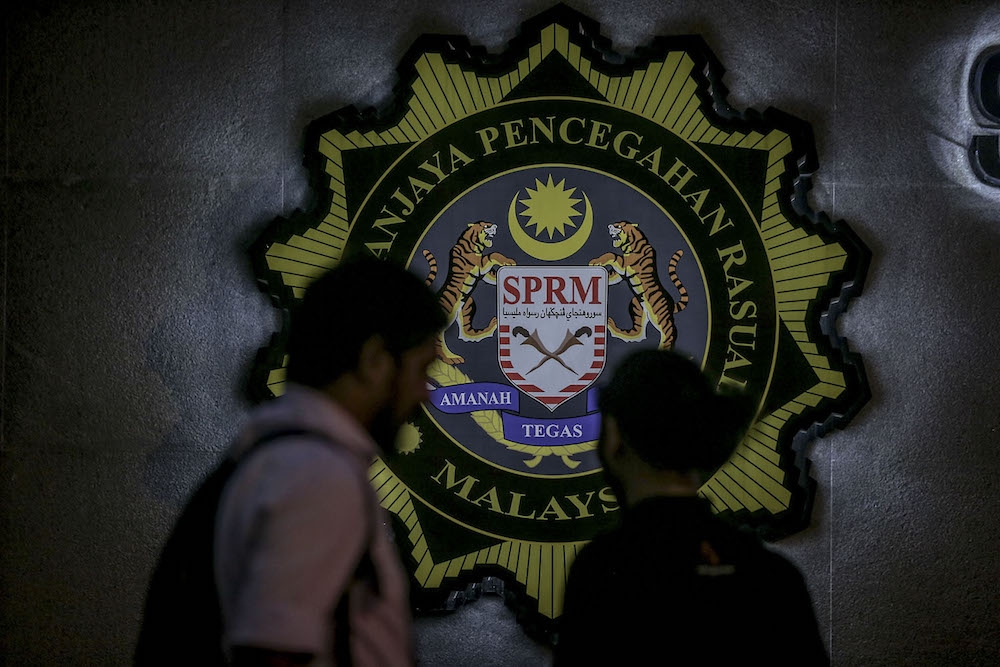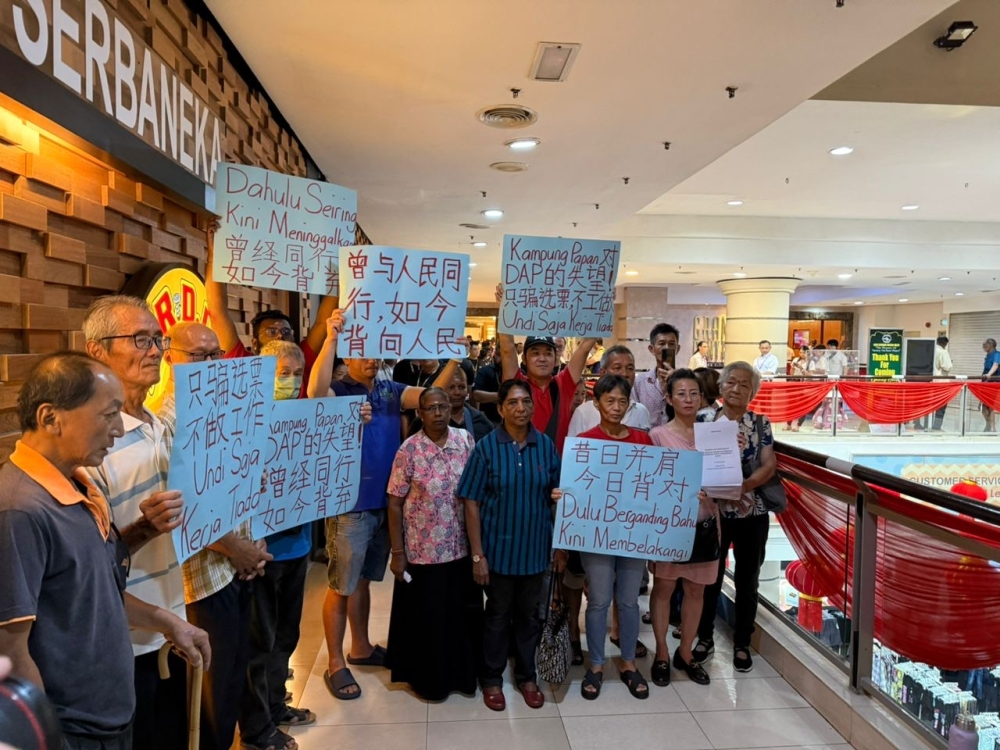KUALA LUMPUR, March 27 — Malaysians have been told to close all non-essential businesses for four weeks until April 14 to slow the spread of Covid-19, but what happens if tenants face financial difficulties or income loss as a result of this and are not able to pay their landlords on time?
And what is force majeure and how does it apply when you are late in paying your monthly rental because of the current situation that Malaysia is in?
Ultimately, a lot depends on what is actually written in your tenancy agreement and if tenants manage to work out an arrangement with their landlords.
Malay Mail asked some lawyers for their views and here is what they said:
1. What is force majeure?
Lawyer Ong Yu Jian said any events beyond the reasonable anticipation of those who signed a contract and which affects the agreement can be considered as force majeure events.
“Force majeure is a legal principle which recognises the possibility of an unanticipated and significant event occurring, beyond parties’ control, which makes the performance or continuation of that contract difficult or impossible to perform.
“When that happens, parties can choose to either terminate the contract, with no further claim against one another (i.e. the principle of frustration), or temporarily suspend or waive performance of certain obligations by certain parties,” he said, although noting that this would depend on what the clause actually says in the tenancy agreement.
2. You can't rely on force majeure if you don't have the clause
Ong noted that the government's movement control order (MCO) which requires non-essential businesses to shut down for weeks has caused many business owners to panic, as “the inability to generate revenue may put the business into serious trouble if it has to still meet its payment obligations like rental, bank loans or staff salary”.
Ong said many of these business owners may have discovered the legal principle of force majeure and mistakenly assumed that force majeure is a “magic button that allows them to avoid all payment obligations because of the MCO, automatically”.
But Ong said that this assumption is “wrong”, as force majeure can only be cited if the tenancy agreement has a clause to provide for it.
“Force majeure is not an automatic right or a principle which underpins any agreement impliedly. Instead, it must be specifically expressed in a contract to enable a party to rely on it. It is a creature of contract and it must be drafted specifically,” he said.
3. Wait, is Covid-19 covered in force majeure clauses?
While Ong noted that Covid-19 and the Malaysian government's MCO would definitely not be expressly named in any force majeure clause, he said such clauses would typically be wide enough to cover situations like this.
“But usually, those clauses are drafted with certain broad definitions that can cover it, for example 'war, riots, fire, flood, hurricane, typhoon, earthquake, lightning, explosion, strikes, lockouts, slowdowns, prolonged shortage of energy supplies, and acts of state or governmental action prohibiting or impeding any party from performing its respective obligations',” he said.
You might also remember seeing clauses in agreements with the phrase “Act of God”, a typical term used in force majeure clauses that covers things such as natural disasters.
According to Ong, there will be no need to go to court if both tenant and landlord agree that a force majeure event has occurred and resulted in the late rental payment, but the matter will have to go to court to be interpreted and decided on if the landlord refuses to accept the current situation as force majeure.

Lawyer Lim Wei Jiet said it really depends on the facts on whether the unforeseen circumstance is so serious that it justifies a delay in rent, saying, “Closure of business for 14 days may be force majeure to a hair salon business, but may not be to a law firm, for example, where work and business can be done remotely.”
Lim said force majeure clauses must be in tenancy agreements for a tenant to be able to cite it whether outside of court or in court to avoid suffering the usual consequences for delay of rental, with the tenant then being able to fight for his rights in court using the force majeure clause if the need arises.
“They can cite, but if the landlord doesn't agree, he can terminate the tenancy. That is when the tenant can go to court and claim that the tenancy was unlawfully terminated because of a force majeure event. If the tenant successfully raises, the tenant can either get damages or ask that the tenancy continue.
“If the tenant continues to occupy the premises pending the resolution of the court case (which can take months), it's only fair the rent continues to be paid,” Lim added.
4. Different effects of force majeure events depending on the tenancy agreement: suspension, waiver, termination
The tenancy agreement is important as the tenants' payment obligations are bound by the terms in that contract, with Ong saying: “There are many types of force majeure clauses in existence. It depends on what they signed on.”
Not all force majeure clauses are drafted the same way, with Ong saying that any commercial tenant whose business is affected by the MCO should go through their tenancy agreement to see if there is any force majeure clause and what is actually written in the force majeure clause.
For example, a force majeure clause that allows for suspension of rental payment during the force majeure event may mean that the tenant can argue that the MCO entitles them to delay payment during the affected period.
“If the force majeure clause allows the tenant to “suspend” payment during the force majeure event, then it means that they have to pay after the event finishes.
“If the force majeure clause says that rental is waived during this force majeure event, it means they don't have to pay. Again, it goes back to what the actual clause says,” he said, noting, however, that it is “uncharted waters” when it comes to how long the force majeure event is in terms of the MCO due to Covid-19.
“However, if the force majeure clause does not allow the suspension of payment but instead stipulates that the entire tenancy becomes terminated when force majeure happens, then the tenant must choose either to pay and continue, or terminate the rental based on force majeure, and move out,” he said, confirming that termination in such situations would mean that the tenant does not have to pay.
For force majeure clauses resulting in termination, when the tenant chooses not to use the clause but makes the delayed rental payment and stays on, the landlord cannot simply ask for more rent or evict the tenant, Ong said.
This is because the landlord is also bound by the terms of the agreement, which means the landlord will only have the right to terminate or evict the tenant if the tenancy agreement says this can be done when the tenant fails to pay monthly rental by a certain day each month.
But if the tenancy agreement allows for the landlord to take certain action for delayed payment — even when the tenant chooses not to use the force majeure clause to terminate and stays on by paying — Ong confirmed that the tenant and landlord can still negotiate.
“If the tenant can terminate due to force majeure but refuses to do so, as long as the tenant pays the landlord's right to evict or terminate does not arise,” he said.
As for whether the landlord can choose to cite the force majeure clause that allows for termination in order to end the contract, Ong said force majeure can be used only by the party who cannot perform its obligation and that it would be the tenant in the case of MCO, while the landlord is not the one affected and would not be able to rely on the clause.
5. For those with no force majeure clauses in their tenancy agreements
Ong said tenants who do not have a force majeure clause in their tenancy agreements will have no right to suspend or delay rental payment, or even terminate the tenancy despite any event that happens.
“However, if there is no force majeure clause in the agreement, then the tenant would have to pay rent as per normal. Any failure or delay on his part to do so would entitle the landlord to take action against the tenant in the manner allowed by the agreement,” he said.
“This is why it is very important to seek legal advice before signing any agreement, and not just sign it off because the terms are ‘standard’.”
Lim confirmed that tenants without force majeure clauses in their tenancy agreements cannot cite force majeure events to their landlords or in court, also confirming that it would then depend on what the tenancy agreement says and whether an arrangement can be worked out with the landlord to avoid termination of tenancy.
“That is why you should get a good lawyer to draft your tenancy agreements,” Lim said.
6. What about residential tenants vs commercial tenants?
Those who are renting a place to stay may not be able to cite the force majeure clause when they are unable to pay their rent on time, as their tenancy agreement is for them to be able to stay there.
“Force majeure is for an event that affects the very subject matter of that agreement. Thus, for commercial tenants, they are definitely affected because their entire tenancy is premised on them being able to run a business on that premises.
“Residential tenants may not be able to argue force majeure, because their tenancy is not affected by the MCO. They can still live in their house… We know that their inability to make money means their financials are affected, but it is not a direct effect on the tenancy,” Ong said, confirming that residential tenants would then have to see what the tenancy agreement says and try to negotiate with their landlords to work out arrangements, including a delay in rental.
7. Compassion in trying times
Lim said, “But landlords should show some compassion in this time of need and be a bit lenient on tenants. Normally late payment would warrant termination of the tenancy. But it really depends on each tenancy agreement. Further, some agreements allow the tenant to remedy the delay within seven days, etc.”

Lawyer Gavin Jay Anand Jayapal said that tenants unfortunately cannot delay making rental payments to landlords because of the MCO, but also noted that landlords could decide to allow it.
“Most, if not all tenancy agreements, tend not to incorporate such clauses. On a humanitarian basis, some landlords may agree. However, if a tenant is receiving his/her salary in full, then rent shouldn't be deferred,” he said, confirming that it would be up to both parties to negotiate and reach a mutual agreement for rental to be deferred if the tenant is facing financial difficulties.
When tenants delay their rental payments, Gavin said that the consequences would depend on what is stated in the tenancy agreement.
“Most tenancy agreements will specify that upon default, a landlord shall be at liberty to deliver notice to the tenant outlining said default, together with a warning that if rent is not paid, the tenancy agreement shall be terminated. If a tenant were to default, a very strong possibility would be that the landlord shall issue a notice to the tenant,” he said.
8. Ongoing tenancies vs tenancies yet to take effect
Gavin said the current Covid-19 situation and MCO would amount to a force majeure event or situations outside of a tenant’s control that causes inability to perform the contract through paying rental on time, adding that the use of force majeure clauses would typically result in termination of the contract.
“As such, if a tenant were to invoke force majeure, they would essentially be saying, ‘I cannot perform the contract due to events outside of my control’. In line with this, the contract would be deemed terminated and the tenant would be obligated to return the premises to the landlord.
But he said that given the MCO, the force majeure clause would be “highly infeasible” and a “very undesirable” clause in the tenancy agreement to rely on, especially for residential tenants as they would then have no place to stay after using the force majeure clause to terminate the contract.
“Force majeure clauses will apply to tenancies that have been signed but haven't come into effect as of yet (ie. the landlord and tenant have executed the tenancy agreement, but the tenant hasn't moved in yet). In such a scenario, either party may invoke the force majeure clause, if they so wish (Act of God).
“For tenancy agreements currently ongoing, the force majeure clause may be applicable if the ongoing coronavirus situation renders performance of the contract impossible. This would be highly fact-sensitive and in general, the coronavirus situation probably won't allow for the force majeure clause to be invoked to terminate a tenancy agreement,” he said, giving as example a situation where the force majeure clause may not apply as when a residential tenant is still living in the rented house when the MCO takes effect.
A law firm has also written an article on this topic.



